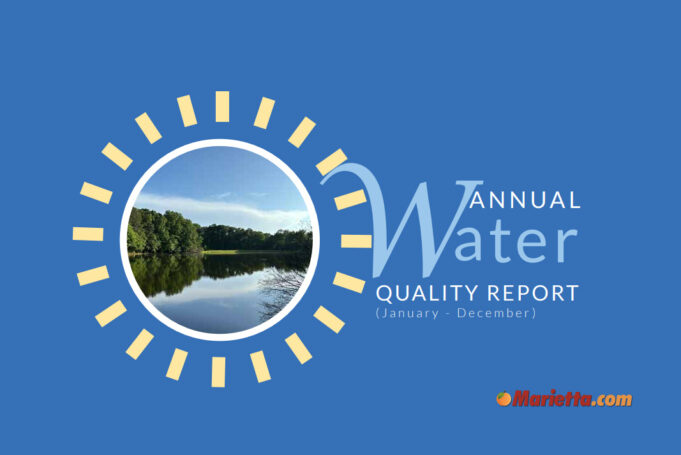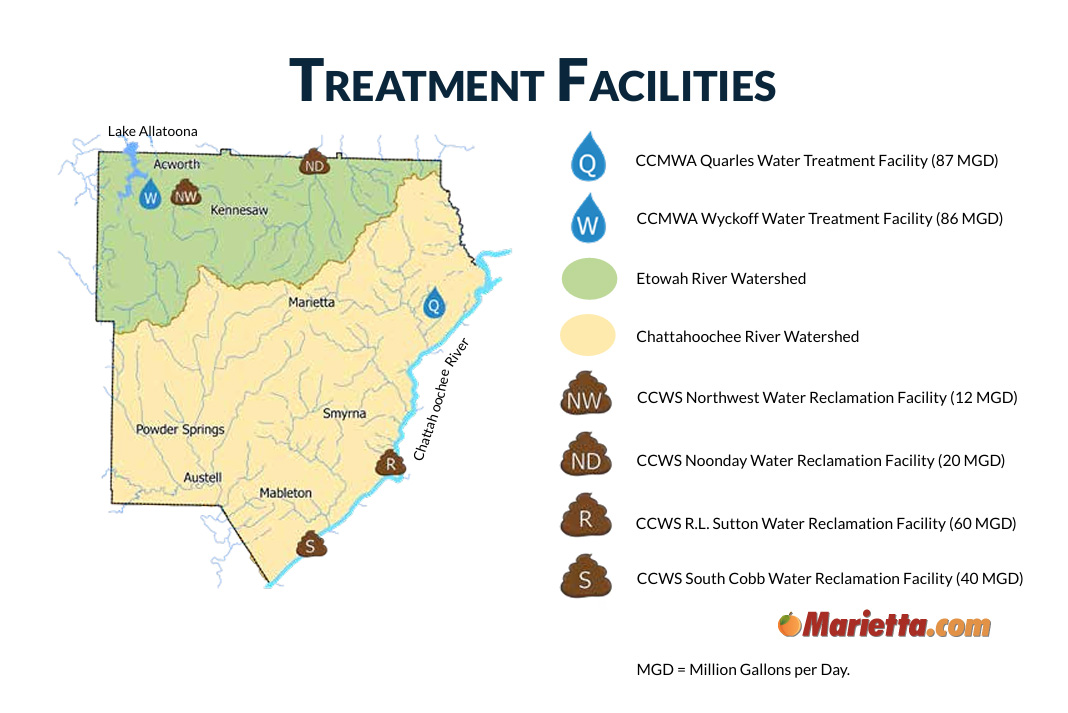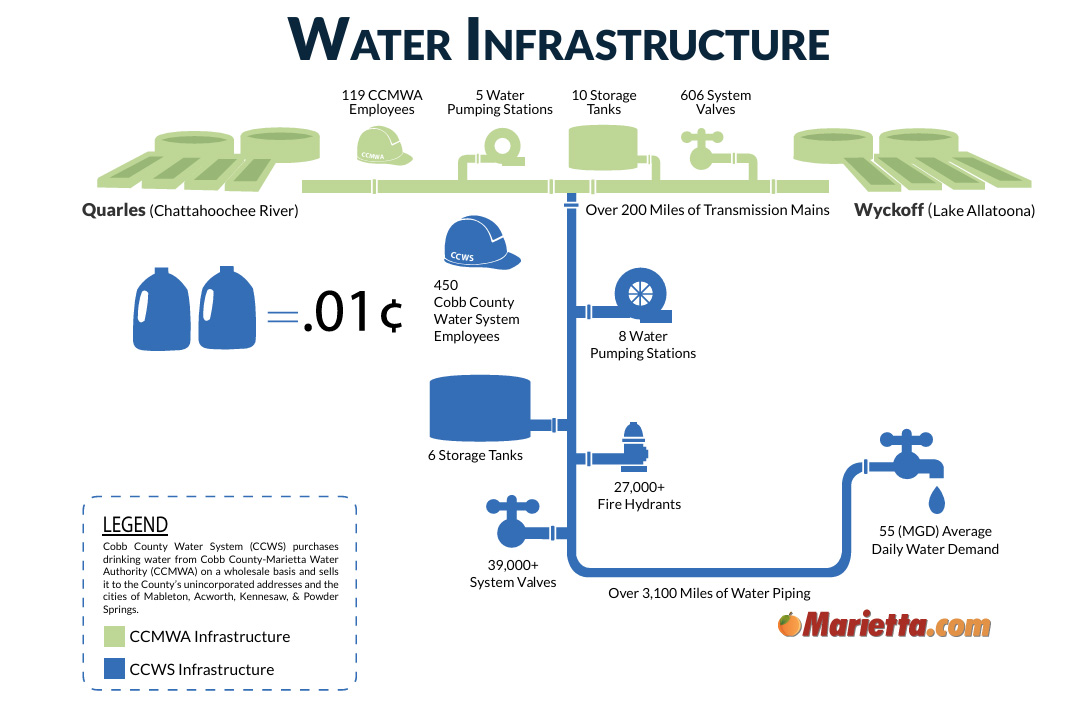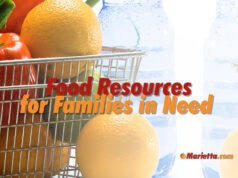For Cobb County residents who’ve ever wondered what exactly flows from their faucets, the 2025 Annual Water Quality Report delivers a clear message: the water is clean, safe, and meets every state and federal requirement. Here’s a breakdown of where the water comes from, what’s in it, and what we should keep in mind.
Where Cobb County Gets Its Water
Cobb County doesn’t treat its own drinking water, it purchases it wholesale from the Cobb County-Marietta Water Authority (CCMWA). CCMWA draws from two surface water sources:
- Lake Allatoona (feeding the Wyckoff Water Treatment Plant)
- Chattahoochee River (feeding the Quarles Water Treatment Plant)
Both facilities use advanced treatment methods to remove contaminants and deliver water to the Cobb County Water System (CCWS), which then distributes it to homes and businesses across the county.
Is the Water Safe?
Yes. Every single water quality test conducted in 2024 showed that Cobb County’s drinking water met or exceeded the standards set by the Environmental Protection Agency (EPA) and Georgia regulators. No violations were reported.
Here’s a snapshot of what was tested and what was found:
- Microbial contaminants like coliform and E. coli? Present at very low, non-harmful levels, with no violations.
- Inorganic substances like fluoride and nitrates? Well below the maximum levels allowed.
- Disinfection byproducts such as trihalomethanes (TTHMs) and haloacetic acids (HAAs)? Detected in small amounts, but all within safe limits.
- Lead and copper? Extensive testing in 2023 (with new tests starting annually in 2025) showed that neither contaminant exceeded EPA action levels in any samples.
PFAS, or “Forever Chemicals”
Cobb County’s water has also been tested for PFAS (per- and polyfluoroalkyl substances), synthetic chemicals found in everything from rain jackets to nonstick pans. These unregulated contaminants have drawn national attention due to their persistence in the environment and potential health risks.
In 2024, Cobb County’s water showed low PFAS levels, with none exceeding the EPA’s new regulatory thresholds. While detection of PFAS alone isn’t automatically concerning, residents interested in minimizing exposure can consult the full testing data at cobbcounty.gov/PFAS.
What Affects Water After It Leaves the Pipe?
Water quality at the tap can change depending on the plumbing in individual homes. For example:
- Metal pipes can leach trace elements into water.
- Lead service lines can be a concern—but no lead service lines have been found in Cobb County’s system.
- Sitting water (like in an unused guest bathroom) can allow bacteria or metals to build up. Letting the water run for a few minutes before use is a simple way to clear this out.
The county also encourages residents to check their home’s pipe materials through its Water Service Line Inventory at cobbcounty.gov/WSLI.
Understanding Potable and Non-Potable Water
Potable water means it’s safe to consume. Your hot water line is non-potable and suitable only for bathing, cleaning, and washing purposes. Hot water lines can carry contaminants like sediments, metals, bacteria, and pathogens that often accumulate within water heater tanks and pipes. Always use cold water lines for brushing teeth, drinking, and food preparation. For making hot beverages or cooking, start with cold water, then heat it using a kettle, microwave, or pot.
What Else Should Residents Know?
- Only use cold water for drinking and cooking, especially if you’re concerned about lead. Boiling doesn’t remove lead and can actually concentrate it.
- Water infrastructure is robust, with over 3,100 miles of piping and 27,000+ fire hydrants.
- Water reclamation efforts are strong, helping manage and treat wastewater efficiently across several facilities.
- Cobb County was recognized with multiple awards for excellence in water management and education.
Helpful Tips and Resources
- To report a broken water line: Call 770-419-6201
- To get help identifying pipe materials: www.cobbcounty.gov/WSLI
- For lead test questions: Contact UGA Extension Office at 770-528-4070
- Learn more about PFAS: www.cobbcounty.gov/PFAS



















